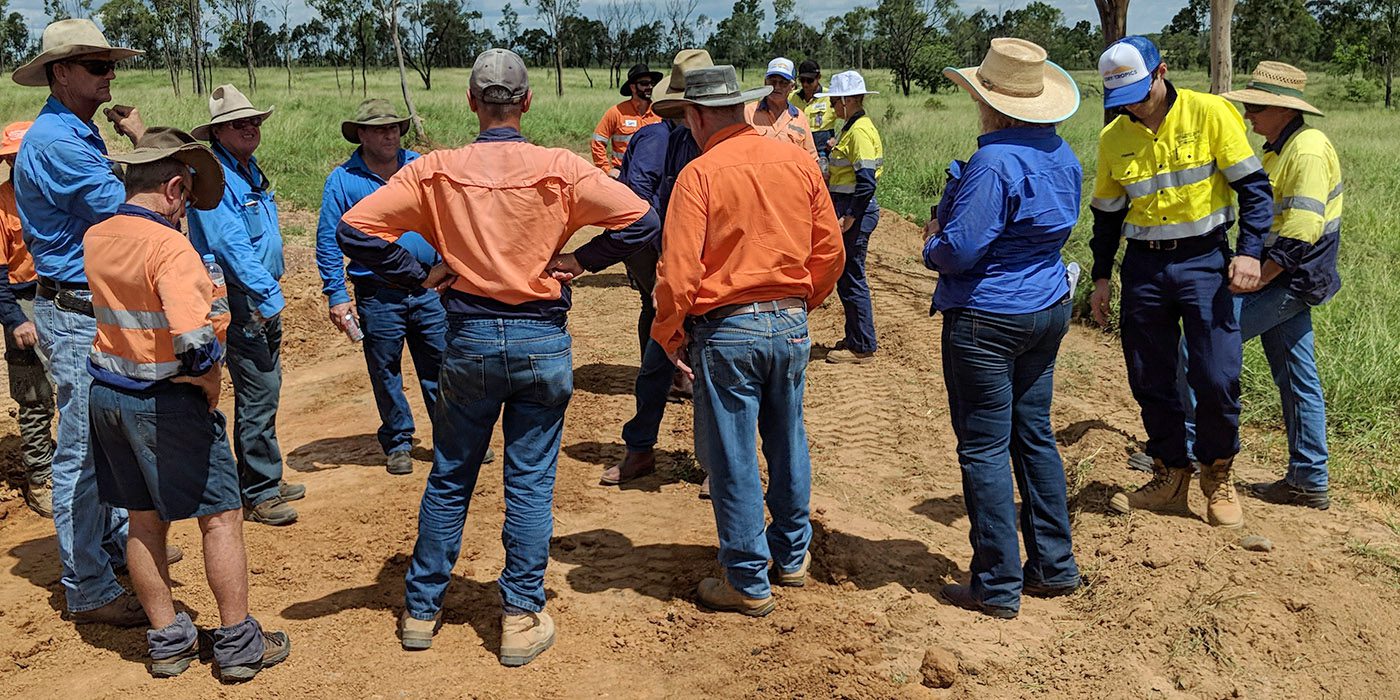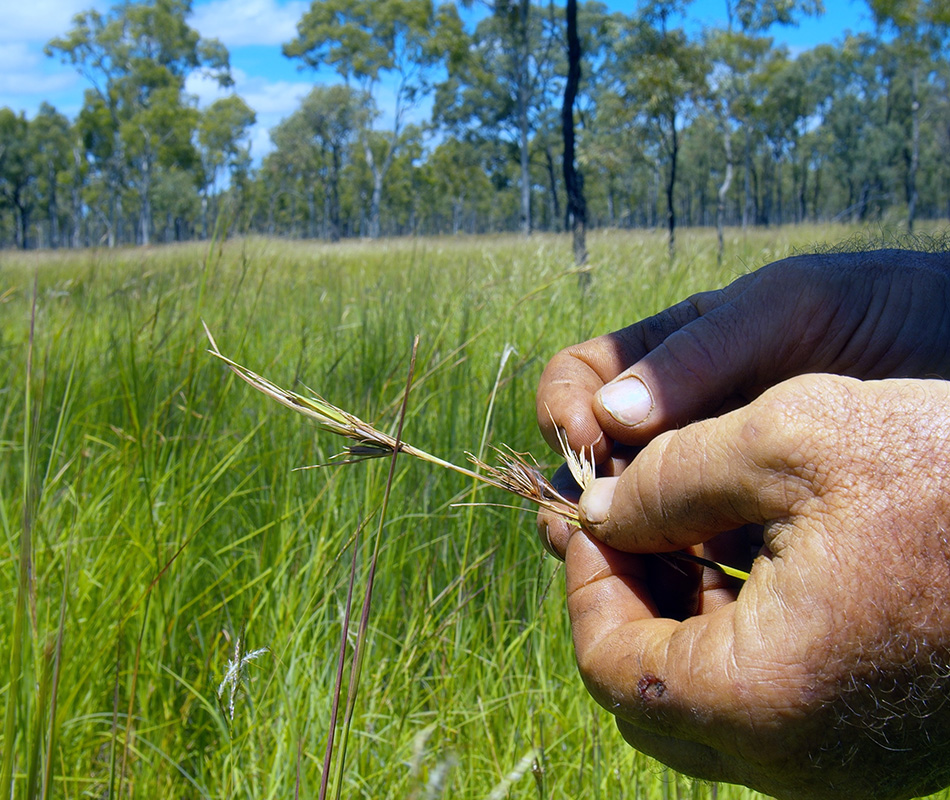Landholders including graziers, council workers, and other land managers inspect a finished contour bank during a Darryl Hill workshop.
Fostering an ethic of land and water stewardship in the community
In its broadest sense, stewardship is recognition of a collective responsibility to retain the quality and abundance of the land, air, water and biodiversity, and to manage this natural capital in a way that conserves all of its values.
One of LDC’s goals is to advance a land and water stewardship ethic through the lens of achieving healthy and productive communities, and robust local and regional economies.
The project has created a framework for greater participation and more organised allocation of resources, resulting in stronger alignment between on-ground activities and, ultimately, better outcomes for tackling erosion, land management and improved water quality.
The broad mix of actions rolling out across the catchment is creating a community of practice that is accelerating learning, advancing skills and knowledge, and improving water quality outcomes.
When it comes to trusted sources of information in seeking advice and support, BBB landholders highlighted peer-to-peer learning as a particularly beneficial way to pick up new information and ways of doing things through discussion, or from observing the practices of a host property.
LDC has tailored activities to include peer-to-peer learning opportunities, cluster groups and catchment catch-ups to foster these relationships and to encourage members of the community to lead by example and share experiences.
Landholders indicated that attending these types of activities motivated them to implement new ideas on-property to improve productivity and efficiency. Some landholders also spoke about the social aspect of events or being part of a group saying it was an opportunity to be able to get off their property for a day, see their neighbours, and network and learn with others.
Almost half of all LDC events have been held on grazier properties, increasing the opportunities for those in the catchment to see first-hand what practices worked and were being trialled.
LDC has supported 10 cluster groups with the aim of encouraging participating landholders to lead one another and the broader catchment community by example.
When cluster groups were asked to reflect on the value of working together, a common was the increased ability to see what was being done elsewhere, as a result of being involved in the group.
Of those landholders committing to water quality improvements on their properties, most were sharing information several times per month. Almost 80 per cent indicated they shared information with neighbours, and half shared information with the broader agricultural industry.
Stewardship is a responsibility to manage natural capital, including native pasture, in a way that conserves all of its values.
Grazier support
Focus on ground cover
What’s next?


